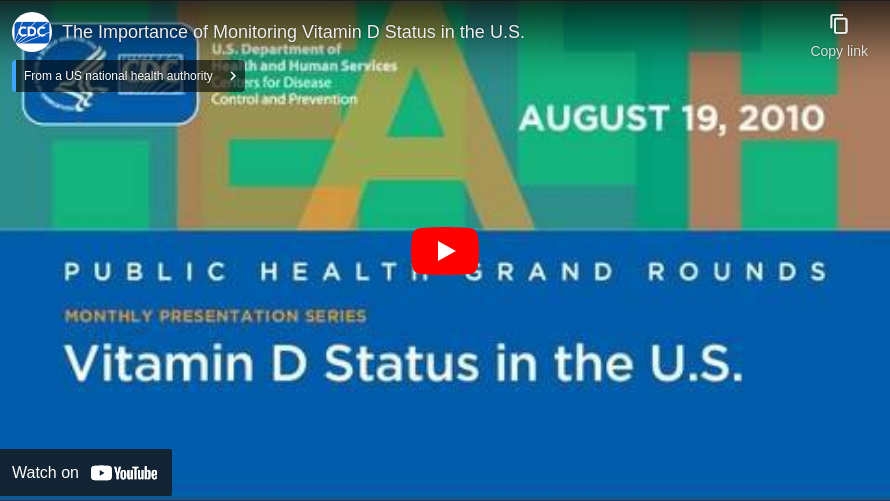The Importance of Monitoring Vitamin D Status in the US
Presented on .
Thursday, August 19, 2010, at 9 a.m. (EDT) Vitamin D has become one of the most controversial nutrition issues of the day. While the vitamin’s role in preventing bone diseases such as osteoporosis is well documented, recent studies suggest that increased intake of vitamin D may also reduce the risk of various cancers, diabetes, and heart disease – a possibility that has many heralding it as a “miracle vitamin.” However, not only are these studies being called into question for their failure to show a direct cause and effect, but there is also evidence that excess intake of vitamin D can be toxic. As a result, the U.S. and Canadian governments have commissioned the Institute of Medicine to review the Dietary Reference Intakes for vitamin D, a project that will be completed in the fall of 2010.
This session of Public Health Grand Rounds reviewed the latest evidence of vitamin D’s effectiveness and safety and discussed challenges in how to best measure and define vitamin D status.
- Clifford L. Johnson, MSPH
- Director, Division of Health and Nutrition Examination Surveys
National Center for Health Statistics, CDC
- Christine M. Pfeiffer, PhD
- Chief, Nutritional Biomarkers Branch, Division of Laboratory Sciences
National Center for Environmental Health, CDC
- Paul M. Coates, PhD
- Director, Office of Dietary Supplements
National Institutes of Health
- Tanja Popovic, MD, PhD
- Scientific Director
Get notified about the latest updates from Public Health Grand Rounds right in your inbox by setting up an alert today!
Get notified about the latest updates from Public Health Grand Rounds right in your inbox by setting up an alert today!Sign Up
Get notified about the latest updates from Public Health Grand Rounds right in your inbox by setting up an alert today!
